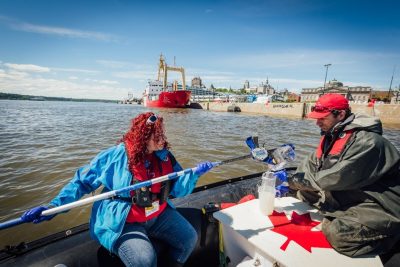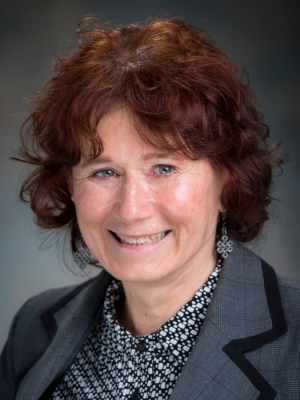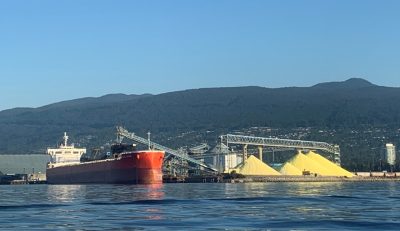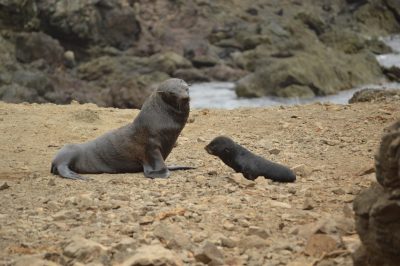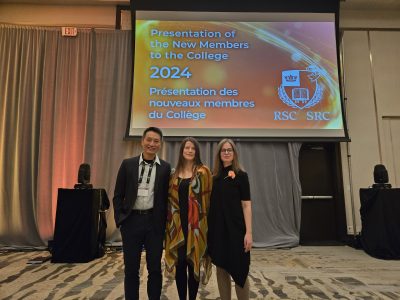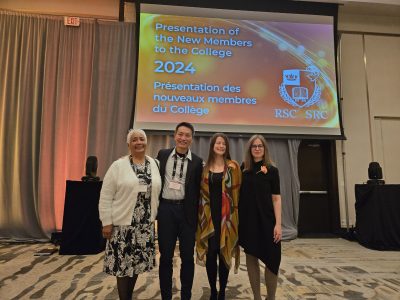Student Profile: Anna-Luna Rossi
Anna is a second-year PhD student at the Institute for the Oceans and Fisheries under the supervision of Daniel Pauly. Her research focuses on understanding the fisheries and their impact on the marine ecosystem in the archipelago of Saint Pierre and Miquelon to infer relevant fishery regulations.
Using environmental DNA to map biodiversity across Canada’s three oceans
The ability to detect the distribution of not only widespread, but also rare and endangered, species using eDNA allows researchers to identify critical habitats and biodiverse areas requiring protection.
Visiting fellows selected for inaugural cohort of Africa-UBC Oceans and Fisheries Program
The Program is extremely pleased to announce the selection of its inaugural laureates: Dr. Cynthia A. Adinortey (Ghana) and Dr. Antony Otinga Oteng’o (Kenya).
In Memoriam: Dr. Evelyn Pinkerton (1943–2024)
Dr. Evelyn Pinkerton was a revered scholar, teacher, and pioneer in the fields of maritime anthropology and environmental management. She passed away peacefully on November 6, 2024 at the age of 81.
IOF faculty and students win awards from the Peter Wall Legacy Awards program
These awards are one of the largest internal award programs at any university in North America. The suite of awards will support the research activities of tenure-track faculty members at all stages of their career, and those of Master’s and doctoral students.
Celebrating our graduates
It is always sad to say goodbye to our graduating students.
Why what happens on the land is critical to the health of our oceans
What is the significance of these myriad small streams to the surrounding ocean, so important to people’s livelihoods, culture, and well-being in British Columbia?
The long road to recovery: consequences of harassment of Guadalupe fur seals pups
Breeding activity at the second breeding site in the San Benito archipelago inspired hope for the species’ recovery, but researchers were shocked by the disturbing behaviour they observed from immature males, which may jeopardize this progress.
RSC College induction ceremony
RSC College induction ceremony, Nov. 2024. (l to r) Dr. Kii’iljuus Barbara Wilson, Dr. William Cheung, Dr. Andrea Reid, Dr. Marie Auger-Méthé

